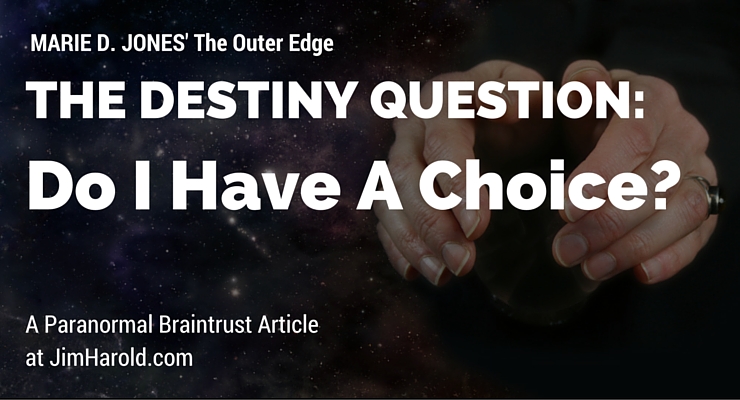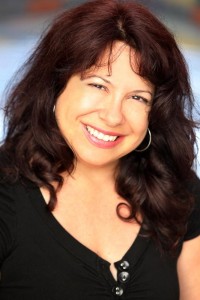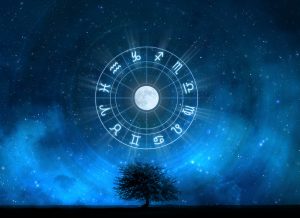

Marie D. Jones
“Man was predestined to have free will.” – Anonymous
“You can’t avoid it, it’s written in the stars.”
“He was destined to be a success.”
“Life is what you make it.”
“Choose your thoughts and choose your life.”
Life can be so darn confusing. Social media and self-help gurus bombard us with contradictory claims that our lives are pre-destined, that Fate deals us the cards we will play our entire lives with, that whatever happens, happens for a reason. OR that our lives are what we choose them to be, that what we focus on expands and manifests according to some “Law of Attraction.” Or maybe it’s all just one big crapshoot. Is there a blueprint for our lives or are we making it up as we go along?
From our career paths to our love lives to whether or not we become parents, we wonder how much of it is a result of one choice atop another choice atop another…or if we had no choice in any of it at all. We meet people and feel as though we were “destined” to know them. We put out the word of our desire for a new job, and someone calls with a lead the next day. Yet other times, life doesn’t go as smoothly and we wonder if we’re slamming up against the wall of fate, unable to break it and have our will no matter what we do.
I’ve been thinking about this subject a lot lately, recently feeling this pull towards certain people and situations that genuinely seem as though they were “meant to be,” all the while pondering with some frustration other situations I cannot seem to fix or change.
The word “destiny” comes from the Middle English “destinee,” and simply refers to a predetermined course of events that are the result of an irresistible power or agency. But destiny has often been confused with fate, which is a little more constricting. While destiny implies that one has a bit of maneuvering room by which they can reach their destined end point, fate implies no such allowance for choice. Thus, some outside “agent” such as a God, Goddess or other entity was once thought to be the purveyor of one’s fate. This outside agent or force set down in stone how a person’s life would unfold, and there was nothing that person could do to change the course of events to come. The results were fixed, like some past presidential elections.
The Greek myths spoke of the “Moirae,” and the Roman myths, of “Parcae.” The Norse myths had their “Norns.” These were, in all three cases, a triad of goddesses that were given the role of imparting the circumstances and events that would make up a mortal’s fate. There are even goddesses that are responsible for giving out good fortune, such as the Greek goddess Tyche, and the Roman Fortuna, ruling out any role that choice might play in finding and keeping wealth, success and happiness. If the goddesses didn’t deem you fit, you were screwed.
In order for a life to be predestined, it had to be predetermined, and this is where science, philosophers and religious and spiritual leaders have long struggled to explain exactly who, or what, predetermined it. If we understand that all causes have a prior event, what was that first prior event? Which came first, the cause, or the event? One can easily see why the battle between destiny and free will has been an enduring one, just like the chicken and the egg.
While scientists might say it was just random, the result of the Big Bang and its resultant physical laws that fell into place by some kind of brilliant accident, philosophers and religious thinkers sensed that there was something that started the whole chain of cause and effect that laid down the path of each human life, maybe even the earth itself. This beginning of the chain is known as “first cause,” and without knowing first cause, we simply don’t know who or what destined us to our roles in life.
A lot of the debate centers on how mutable we view the future as being. If each moment of our future, and the future of everyone around us, were already planned to the minutiae, then would there even be a purpose to life at all? Why would we not then be robots, born to eat, reproduce and die with no dreams or goals or feelings or emotions or consciousness at all? The Buddhist concept of pre-destination might solve that problem. Known as “yuanfen,” it suggests we take the word predestination somewhat literally. Pre meaning “before,” as in what comes BEFORE destiny. Because there is no concept of God in Buddhism, this explanation suggests instead there is a linear fashion by which our lives are bound to happen. That doesn’t mean that’s how they WILL happen…but only how they are bound to and that we can change something, and thus lead to a new life that is bound to happen as a result. We get some control here, but still move towards what feels to us like a “chosen path,” even if we are doing most of the choosing.
The sacred Buddhist scripture, the “Samyutta Nikaya,” tells us:
“According to the seed that is sown
So is the fruit you reap from there.”
This sounds just like the Judeo-Christian concepts of reap what you sow and do unto others. Those important ‘golden rules” of life involve choices. And that’s the thing. We know we have choices…don’t we? We feel as though we have the ability to choose our spouses, our jobs, our homes, the kind of food we will have for dinner, and whether or not we will go to the movies on a Sunday night or just sit home and watch “The Walking Dead.” It’s up to us to decide. The founding father of political philosophy, Thomas Hobbes, states that freedom is the ability to do what we wish without hindrance or constraint. Even within the confines of our social, cultural, sexual and behavioral conditioning, complexes and needs, we can do whatever we choose. Later philosophers added that perhaps freedom was not so much about being able to do anything one wanted to do, but to have the power to do anything one wanted to do.
Yet over thousands of years, we have battled with the sense that both destiny and free will or choice play a huge role in our lives, and certainly in how the world around us came to be. Our religions are filled with stories and proverbs and quotes about having a destined role or a predetermined fate, such as Christ’s destiny to be betrayed by Judas. He knew. He said it was his destiny, and he drank of that particular cup willingly, taking his final fate in his hands. But remember, he could have chosen not to follow through with it all. He could have chosen to say no.
MARIE’S BOOK ON THE SUBJECT: Destiny vs. Choice: The Scientific and Spiritual Evidence Behind Fate and Free Will
But what does science have to say about destiny and choice? If we look at our own bodies, we can easily see that we have a genetic blueprint by which we became blond or brunette, green-eyed or brown-eyed, short or tall, big boned or small boned, and any other physical characteristics that were handed to us by our parents and their parents and their parents. We didn’t choose our genes. And yet, when it comes to behavior we seem to be able to make choices, both good and bad, and have some say in the course and outcome of our life path. There seems to be ample evidence for both nature vs. nurture, and both inherent and adapted characteristics that make up a human being.
The Big Bang is often referred to as the starting point of our universe (we won’t even get into what came before it, or what first cause “caused” the Big Bang!), from which all the forces, laws and matter and form and energy and life came into existence. It was perhaps a blueprint of sorts, and yet many scientists will say that it did not have any kind of intelligent design behind it. It just happened the way it happened. There was nothing, then – BANG! – there was everything.
But there are those scientists who believe that the amazing sophistication and intricacies of how life came to be simply could not have been a lucky accident of chemicals and particles and gasses and heat and matter and energy all being in the right place at the right time, and in just the right amounts. To these men and women of science, there indeed seems to be a destiny that started and directs the cosmos, and that the first cause behind it appears to have had some type of intelligence, though not necessarily human. Perhaps the Universe, including us, is nothing more than the program of a giant Cosmic Computer, yet one would still have to ask…who or what is programming the computer?
Even in the quantum world there is interplay of both destiny and choice. At the level of the quantum, we are told that particles exist in a suspended state both as particle and waveform, until they are observed and their wave function collapses, thus fixing the particle into a position or outcome. Particles have a range of possible or potential states and until an observer effect occurs, those states remain in superposition, or happening all at once so to speak. Therefore, an observer can choose the state of a particle simply by observing it. At least that’s the simple man’s version of quantum physics. The truth is far more complicated and involving and I suck at math so I won’t even attempt to get into that! But the implication is exciting and has become the basis for hundreds of self-help and personal motivation books, empowerment tools and expensive webinars.
But if this is how we are creating our reality, as the popular Law of Attraction teachings tell us, with focus and intention and observing things into being, then how could anything be predetermined? Are we all just making our lives up as we go along? And yet, everyone can agree that we all are destined, once born, to die. Those who claim to have died, and return to tell about it, often tell stories of being told by higher guides or divine beings on the other side that they must return and fulfill their roles, or destinies, on the plane of the living. These are subjective and personal experiences, but the fact that so many report them is something to be considered. It is as if we must stay put until our pre-chosen destiny is fulfilled…even if we have to die and return to life again to find out.
 Millions of people visit astrologers, palm readers, tarot readers, even love and relationship coaches wanting to know their destinies. Will I meet my soul mate? Should I change jobs? What is my purpose here? Some readers will tell people that their lives, according to the stars or rune stones or cards, are in some ways predestined, and yet, they have considerable choice in how they will reach that destiny. An astrologer might say that yes, the stars influence your life, but you still have room to move about within the confines of those influences. A tarot reader might tell you that you will meet with danger next week, but you can still make the choice to be hyper-vigilant and avoid a terrible car accident while leaving for work.
Millions of people visit astrologers, palm readers, tarot readers, even love and relationship coaches wanting to know their destinies. Will I meet my soul mate? Should I change jobs? What is my purpose here? Some readers will tell people that their lives, according to the stars or rune stones or cards, are in some ways predestined, and yet, they have considerable choice in how they will reach that destiny. An astrologer might say that yes, the stars influence your life, but you still have room to move about within the confines of those influences. A tarot reader might tell you that you will meet with danger next week, but you can still make the choice to be hyper-vigilant and avoid a terrible car accident while leaving for work.
Love coaches will tell you that there are many soul mates out there for you, and not just The One, and that there might be someone destined for you in a sense that they will be the best fit, but they won’t be the only best fit out of billions of people on the planet.
There is little scientific proof of these tactics working, except when they work. Even in nature, we see both destiny and choice, even fate, play out. Animals kill prey to survive. The fate of the prey is to be food for another species. The destiny of the predator is to survive a bit longer. Both made choices, even the prey, choosing to not be fast enough to escape the predator! Flowers start as seeds and are “destined” to grow into stems and then petals. Not fated, because someone could come along and yank them from the ground, ending their existence. But nature is filled with examples of things that seem to work under the triadic influence of all three: destiny, fate and choice.
But our main concern is with our own lives, more than how they play out in the natural world. We take that all for granted. In our own lives, we want control, yet we want to let go. We want to feel as though something good is destined to be; yet we hope that we aren’t fated for something bad. We choose, pay the consequences for our choices, and end up in a particular place in life because of that trajectory, any of which we could have changed for a different trajectory.
Yet if we are honest with ourselves, many of us do feel called, as if we have a path, or a destiny, that we are moving towards. When we ignore that path, or deviate from it, we are unhappy and dissatisfied. When we feel on path and on purpose, life flows. And yet, always, we have choices. The choice to walk that path, to not walk it, to run or skip or bike it. There may be one destination we are moving towards, but we get to choose the route by which we get there.
I’ve known since early childhood I was going to be a writer. There was no doubt in my mind. It wasn’t fated. I also dreamed of being a jockey and had I been short enough and not fallen off of horses too much, who knows? But I felt “called” to write, and worked very hard towards that outcome, by making choice after choice that I felt would keep me on the path. When I made the wrong choices, I paid the price either with financial distress, physical illness or depression…I felt “off track,” which to me was an indicator that I wasn’t moving TOWARDS something that felt natural and “meant to be.”
Do I have proof I was destined to be writer? No. I don’t have a Certificate of Destiny on hand. Am I fated to be a writer? No. I can quit tomorrow and be a llama breeder. Can I choose to write? Of course, because a human life is absolutely meaningless if it’s all fated and fixed from the get go. We’d never learn, never grow, never expand and fulfill the potentiality of who we can become.
Now I’m starting to sound like one of those metaphysical gurus! But the truth is, there are forces at play in our lives that are unseen except in the effects and influences we can observe. Think of gravity. You cannot SEE gravity, or hold it in your hand, or put it in a jar. You can only observe the EFFECTS AND INFLUENCES of the gravitational force at play around you. Go jump off a table and try to fly. Videotape it please.
Much of investigating the paranormal involves looking at external effects and influences without any general understanding of the cause, or the forces behind them. We have yet to be able to prove that ghosts are real, aliens exist or cryptids roam the backwoods. We have yet to show in a purely scientific fashion that telekinesis or precognition or even remote viewing is real, although we do have some good data and even some hands on clinical testing to show they do happen. (We’re still grasping to understand the mechanics behind it!) We can read our spouse’s very thoughts, but still not be able to prove we are psychic.
For so much of life, we have no proof except our own experiences and perceptions. The same goes for whether our own lives are lived in a way that offer no choice, leading to sense of defeat at the “fixed” nature of it all…or whether we feel like the whole dang world is a peach tree of choices just ripe for the picking.
And the truth is, it’s probably a little bit of both.
—
Marie D. Jones is the author of several books about the paranormal, metaphysics, and cutting-edge science (many coauthored with Larry Flaxman), including PSIence, The Déjà vu Enigma, Destiny vs. Choice: The Scientific and Spiritual Evidence Behind Fate and Free Will,11:11 The Time Prompt Phenomenon and Mind Wars. She has appeared on more than 1,000 radio shows worldwide, and on television, most recently on the History Channel’s Ancient Aliens series. Her website is mariedjones.com.
